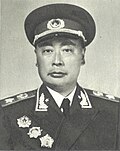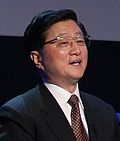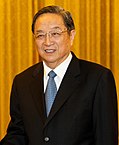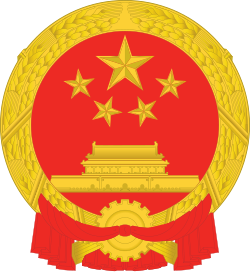 | |
| Legislature | Shanghai Municipal People's Congress |
|---|---|
| Website | www |
| Communist Party | |
| Party | Shanghai Municipal Committee of the Chinese Communist Party |
| Secretary | Chen Jining |
| Government | |
| Executive | Municipal People's Government |
| Mayor | Gong Zheng |
| Executive Deputy Mayor | Wu Qing |
| Congress Chairperson | Huang Lixin |
| Local CPPCC Chairman | Hu Wenrong |
| Commission for Discipline Inspection Secretary | Liu Xuexin |
| Supervisory Director | Liu Xuexin |
| Court President | Liu Xiaoyun |
| Procurator General | Chen Yong |
| Military | People's Liberation Army Shanghai Garrison |
| Commander | Liu Jie |
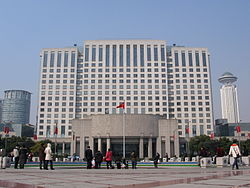
The politics of Shanghai [1] is structured in a dual party-government system like all other governing institutions in the mainland of the People's Republic of China (PRC). In the last few decades the city has produced many of the country's eventual senior leaders, including Jiang Zemin, Zhu Rongji, Wu Bangguo, Huang Ju, Xi Jinping, Yu Zhengsheng, Han Zheng, and Li Qiang.

